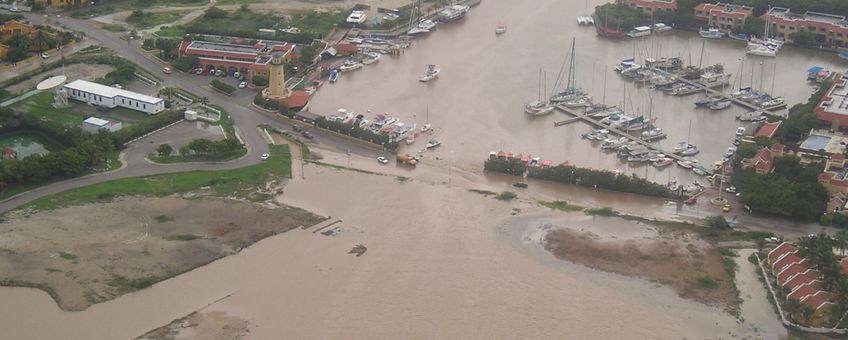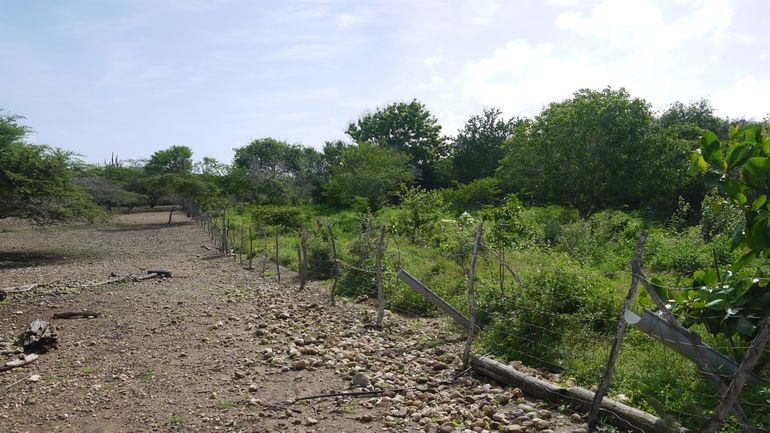
DCNA agrees with scientists: Nature in the Dutch Caribbean is critically threatened and intervention is necessary
Dutch Caribbean Nature Alliance (DCNA)Loss of nature has far reaching negative consequences for the local population since nature serves as both one of the most important sources of income and offers protection against extreme weather conditions.
Seriously endangered nature
Wageningen University recently published an alarming report on the state of nature for Bonaire, Saba and St. Eustatius, commissioned by the Ministry of Agriculture, Nature and Food Quality. Within this study, the unit 'State of Conservation' (SvI) is used to indicate the condition of an environment as it applies to a species or habitat.
The 33 experts who worked on this report concluded that "...the current SVI of biodiversity in the Caribbean Netherlands must be assessed as moderately unfavorable to very unfavorable. This applies to both the habitats and the dependent species and / or species groups. This contrasts strongly with the image for the European Union and the European Netherlands, where governments have been structurally investing in nature policy and management for decades."
"There are many threats to this, but the biggest threats are cattle, invasive exotic species (species that do not occur naturally on the islands), climate change and overfishing. In addition, coastal development, erosion and eutrophication by waste water should not be forgotten. Because the threats are not sufficiently addressed, the scientists view the future perspective as moderately unfavorable to very unfavorable..." stated Wageningen.
Importance of nature
The deterioration of the local environmental conditions has, in addition to negative consequences for the number of plant and animal species, major economic consequences. Habitats such as coral reefs, mangrove forests, seagrass fields, tropical mist and rain forests and caves serve as important tourist attractions. Less nature means fewer tourists, resulting in a decrease in employment and income. In addition, the loss of coral reefs, mangroves and deforestation will provide less (coastal) protection in extreme weather conditions. Examples of this were seen after hurricanes Irma and Maria, which caused major damage in the windward islands in 2017.
Necessary measures
For the largest threats, it is criticial to immediately tackle the issue of overgrazing caused by free-roaming cattle and to improve waste and wastewater treatment systems. In addition, there is a need for improved monitoring mechanisms to better understand the current state of the environment and evaluate its management.
It is also important to improve the resilience of ecosystems so that they are better able to withstand the effects of climate change, such as warmer and acidic seawater (coral bleaching) and extreme weather conditions (longer periods of drought and more powerful hurricanes). Other important management considerations include implementing coastal protection through spatial planning and reduction of erosion through reforestation of indigenous trees and shrubs.
High time for investment in nature and the environment
DCNA agrees with the conclusions of the research of Wageningen and recommends that all involved governments should sit down with (local) experts to work together to find integrated solutions to help reverse these trends. DCNA’s members, nature conservation organizations such as STINAPA (Bonaire), STENAPA (St. Eustatius) and Saba Conservation Foundation (Saba), can use additional resources to take immediate action and, if necessary, carry out additional independent research. The same applies to the other members of DCNA, such as Parke Nacional Arikok (Aruba), CARMABI (Curaçao) and Nature Foundation (St. Maarten). For all islands, investing in nature and the environment is not a luxury, but a crucial investment in the future.
More information
- Staat van de natuur van Caribisch Nederland 2017 (in Dutch. Pdf; 7.2 MB)
Text: DCNA
Photos: Public entity Bonaire (lead photo: due to deforestation and overgrazing by cattle, the soil can no longer be held by vegetation and erosion occurs. Rainwater and wind ensure that the soil ends up in the sea, which together with untreated waste water pose a major threat to the coral reefs); Wayaká Advies

